Scott H. Young's Blog, page 37
June 4, 2019
The Best Articles on Habits
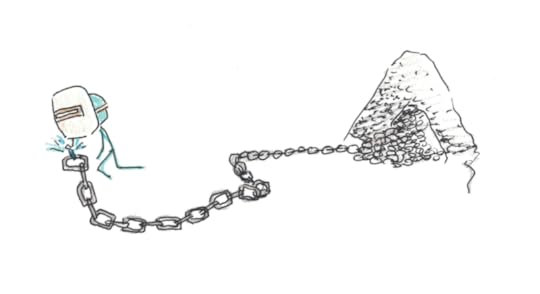
“We are what we repeatedly do. Excellence, then, is not an act, but a habit.” – Aristotle
The way your life plays out is guided by thousands of habits that make most of your decisions for you. Understanding how those habits work and how to change them is essential. Here are some of my best articles on habits, divided into subtopics.
The 5 Best Articles
I’ve written hundreds of articles that touch on habits, but if you’re not sure where to start, here are the best five:
Habitual Mastery – My initial series that started my writing on habits. This was my first-ever article that got popular attention, the advice coming from a time in my life when I was aggressively exploring habit change as a tool for life.
Nine Habits to Increase Your Energy – Feeling sluggish? Here are nine habits to try.
Why is it So Hard to Build Permanent Habits – Most habits are meta-stable, meaning they can persist, but are vulnerable to external forces.
How to Build Habits of Moderation – All-or-nothing is a lot easier than a little bit, because small temptations snowball into major vices. Here’s how to keep a little of what you like without going overboard.
How Important is Growth – Rethinking the idea that all goals and habits should progress to be useful.
How to Change Habits
My book, How to Change a Habit, covers the approach I used for changing many habits early in my process of self-improvement. I still consider it one of the best guides I’ve written on the subject.

In addition to my book, here are some useful free articles that can help you out:
Habitual Mastery (series) – A five-part exploration of the process I use to change habits and how you can think about it yourself.
Habit Stacking: How to Keep Up with Everything When You Don’t Have Time
Three Strategies for Behavior Change – Three broad ways to look at how to change your life.
Three Ways to Fix a Stubborn Habit
Nine Tips for Restarting a Habit After Falling Off the Wagon – Resetting habits, not just making them for the first time, is an important part of the process. Here’s how to do it well.
How to Keep Bad Habits from Ruling Your Life
Advice for Specific Habits
Stuck with a stubborn habit? Here are some articles I’ve written on tackling more specific habit challenges and how I’ve overcome them:
The Six Morning Routines that Will Make You Happier, Healthier and More Productive – How you start your day matters a lot, here’s six ideas on how to start it better.
and why you should Build Your Morning Habits First.
Some Thoughts on Meditation – My ideas about setting (and failing) at regular meditation habits and some different things I’ve tried.
How to Build the Habit of Finishing What You Start
How to Read 70+ Books in a Year – The strategies that let me do it.
10 Steps to Cultivate the Now Habit
10 Habits to Boost Your Happiness
More Thoughts on Habits
In addition to advice, I’ve written a lot about the ideas that surround habits. Are they always good? What’s the right way to think about your habits? These articles explore some of my broader thinking on the topic:
Do You Have Habits, or Just Commitments? – Habits aren’t merely things you do often, but things you do without much conscious effort. I draw a distinction here that can help you determine why some habits persist for years, while others require constant effort.
The Hidden Connection Between Habits and Learning – The two are more similar than you might think!
Multiply or Add – Does your effort stack, or does it compound? The difference can be huge in the long-run.
First, See the Circle – Loops dominate our lives, but do you see yours?
Should You Do Intense, Short-Term Projects, or Build Long-Term Habits?
Choose: Growth or Consistency – You may not easily get to do both.
Do Habits Help or Hurt You Learn?
Step One is Showing Up – Simply showing up, every day, is often enough.
The First Step and the Thousandth
Know Your Burn Rate and Why it Sabotages You Before You Even Begin – A useful concept from startups, applied to life.
The post The Best Articles on Habits appeared first on Scott H Young.
June 3, 2019
Have a Podcast or Blog? Help Me Get the Word Out About Ultralearning

On August 6th, my new book, Ultralearning, will be published by Harper Business.
Being able to quickly learn hard skills is essential to your career and life. Going back to school often isn’t an option, and even when it is, there are many important skills schools don’t teach.
Ultralearning, the art of aggressive, self-directed learning, offers to fill that gap. By combining dramatic stories and detailed science, the book will show you how you can learn new skills, subjects or just get better at anything that matters to you.
I’ve spent over three years working directly on this book. But, in truth, this has really been the book I’ve been preparing to write for over a decade. Now, I need your help.
How You Can Help
As this is my first time writing a book for a major publisher, I want to do everything I can to have the book seen by more people. Publicity and marketing my work outside this blog hasn’t often been my strength, so I’m hoping that you might be able to help.
If you have a podcast or blog, and would like to chat with me about the book, let me know by sending me an email at personal@scotthyoung.com.
If you work as a writer or journalist, and are interested in reviewing the book, let me know as well and I might be able to get you an early copy.
Alternatively if you know someone directly who has a podcast, blog, YouTube channel or otherwise has an audience interested in this topic, feel free to send us an email to connect about the book.
(Only if you actually know the person involved though, if you don’t know the podcast host, but would like to see me on their show, you can let me know but I might not be able to book them if they haven’t heard of me.)
Although you don’t need to have a huge blog/podcast for me to consider, please let me know your audience size, so I can make best use of the limited review copies I have available and make sure the book gets seen by the most people.
Don’t have an audience? Don’t worry. I’ve put together a ton of stuff you’ll like that I’m going to make available for those who preorder the book, I’ll be announcing that soon so stay tuned!
The post Have a Podcast or Blog? Help Me Get the Word Out About Ultralearning appeared first on Scott H Young.
May 27, 2019
Top Performer Is Now Open
Top Performer is the course Cal Newport and I teach for helping you deeply understand what drives success in your career, and then gives you the strategy for getting really good at those skills. We hold sessions quite infrequently, and right now we’re opening registration for another one.
If you’d like to learn more about the course, how it works and whether it’s right for you, see the registration page here.
Everything you need to know about the course is in that link above, but here’s a quick summary of what we teach:
Research — We give you the tools to figure out how any career works and what skills you need to develop to reach the next level. This works for people early in their careers, still trying to figure out what they want to do. It also works for people who have already advanced in their careers and need to know what it will take to reach the next level.
Practice — We break down methods for translating the important research in mastery of deliberate practice to knowledge work. In particular, we teach you how to set up effective projects that will allow you to quickly build new skills and master ones that matter for your career.
Deep Work — Cal and I run through our productivity approaches with a focus on how you can maximize the amount of deep, important things you do every day.
Mastery — How can you set up long-term career habits to continually push your career forward. This includes how to assess your career capital, set long-term goals and stay focused on the big picture instead of getting bogged down in the day-to-day difficulties.
If you have any questions about the course, our team members will be happy to answer them here: support@scotthyoung.zendesk.com
Keep in mind, registration will be shutting down May 31, 2019 – Friday at midnight Pacific Time, so if you’d like to join, you’ll need to act before then.
The post Top Performer Is Now Open appeared first on Scott H Young.
May 26, 2019
You Need to Negotiate Your Lifestyle
Soon, Cal Newport and I will be reopening Top Performer for a new session. This is the course we teach that shows you how to deeply understand your career, build rare and valuable skills, and translate those skills into work you love.
In anticipation of the new session, I’ve been writing some lessons on career advice. I started by explaining why you should master your career rather than try to run away from it. I argued that you need to build rare and valuable skills, which don’t come automatically. I also showed why working harder can actually backfire, if that becomes your source of competitive advantage.
The theme throughout all these lessons is that to have a great career, you need career capital. Skills, relationships and other assets that make you in demand.
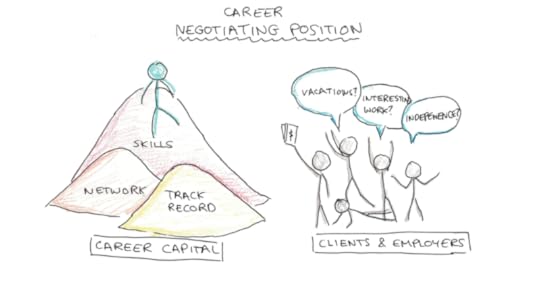
However, while getting career capital isn’t trivial, and it’s the main thing that separates the desirability of different careers, it isn’t the only step to having work you’ll love. Having career capital isn’t enough, you need to actually use it to negotiate the lifestyle you want to live.
What Kind of Lifestyle Do You Really Want?
For a lot of people, they never step back and really ask themselves what kind of career they want. Instead, they act like ambitious rats in a Skinner box, pushing the right levers to get short-term career rewards, without asking whether they want to be in that box in the first place.
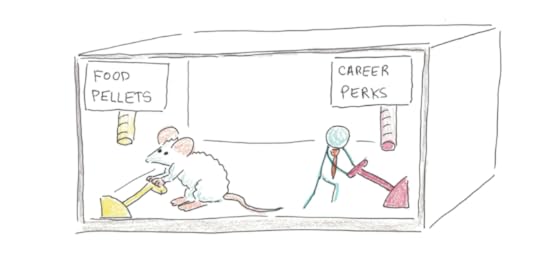
I recently read this interesting story about someone who became a physics major “accidentally”, prodded along by the short-term competition to get grades, and then to get into grad school, he never really asked what kind of career he actually wanted.
I think this is actually a lot more common than most people realize. They get into a company that prioritizes working really long hours, so they start putting in hours to please the people around them, instead of asking whether this company is actually a good fit. Or they start chasing incremental promotions, without really asking whether a tiny bump in salary is worth the added responsibility.
In the first lesson, I made fun of people who chase illusions to get rich without adding value. But, in fairness, at least those people have a lifestyle they’re trying to create. They might be going about it in an ineffective way, but they at least know the kind of life they’re trying to build. Do you?
“But That’s Just the Way Things Are…”
Occasionally I’ll talk to someone who complains about the state of affairs for his or her work. The hours are too long. Vacations are non-existent. You can’t work from home or have flexible hours.
Implicit in these complaints is that this is just the way the job works. You don’t have a choice.
Of course, in some cases, they may be right. If your job is a wedding photographer, you can’t work from home. If you’re a programmer, you’ll be working with computers all day. Sometimes the constraints are intrinsically tied up in the actual work.
But for every person I’ve heard who complains that “this is just the way things are”, I know of others who break the rules. A good friend of mine negotiated part time work at a company to spend the rest of his time working on a personal project even though that was against company policy. I know of people who work from home, even when their coworkers can’t. I know people who work six months of the year and take the other six months off.
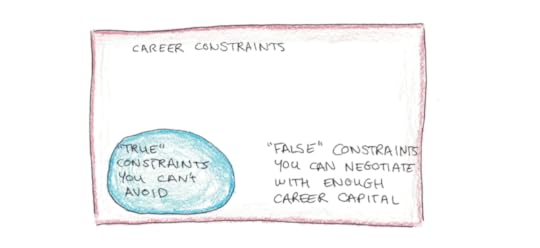
The real truth is that “this is just the way things are” is often really just a way of saying, “this is just the way things are for you.”
Most things are negotiable, provided you are rare and valuable enough to allow people to make you an exception.
Be Wary of Default Lifestyle Choices
Actually getting enough career capital to be able to make unorthodox lifestyle decisions is what’s difficult. However, there’s also plenty of people who have some career capital, but fail to use it when it comes time to pick where and how to work.
I can’t tell you what kind of lifestyle you should want. I had the opportunity, earlier on in my career, to work minimally and earn enough to get by comfortably. Instead, I decided I wanted to take on something more ambitious, so now I have a small team. I work harder now, but I also get to do things I wouldn’t have dreamed of a decade ago.
You might be the same, preferring to take on bigger challenges that really excite you. Or, you might prefer to work less, work from home, take more vacations or be more picky about what kinds of projects you undertake. Regardless, the choice is yours, provided you have the career capital to demand it and the willingness to negotiate it.

Top Performer will open soon. In the eight-week course, we will give you a plan to deeply understand your career (or career choices, if you haven’t yet decided), tools for mastering the rare and valuable skills which will propel you forward and teach you how to create work you love. Come join us for the next session.
The post You Need to Negotiate Your Lifestyle appeared first on Scott H Young.
May 24, 2019
The Productivity Pitfall
In the last two lessons in this series, I first explained why you should master your career, rather than looking for shortcuts or escape paths. Next, I shared how to do that, building rare and valuable skills through deeply understanding your career and getting good at the skills that matter.
Today, I want to talk about a common trap many people fall into with their careers. Instead of viewing success through the lens of mastering the skills of delivering value, they see it about hard work and productivity.
What’s Wrong With Productivity?
On the surface, there’s nothing wrong with working hard or being productive. All else being equal, doing more of these things will improve your career.
Remember the economic logic from the start. Having a great career comes from being able to deliver value others can’t. If you deliver more value, the more career capital you have to negotiate with, not only to earn more money, promotions and prestige, but also to negotiate the kind of lifestyle you want to go with it.
If you do more work, you’ll deliver more value, and if you deliver more value, you’ll have more career capital. So where’s the problem?
The problem is that by hard work alone can often lead to a trap. Think about why your employers or clients want to give you work: because you give them something worth more than the cost.
In theory, there’s two ways you can do this. The first is by increasing the scarcity and value of what you offer. If you can do something that’s more valuable, or that’s harder to find competitors for, you’ll be more in demand.
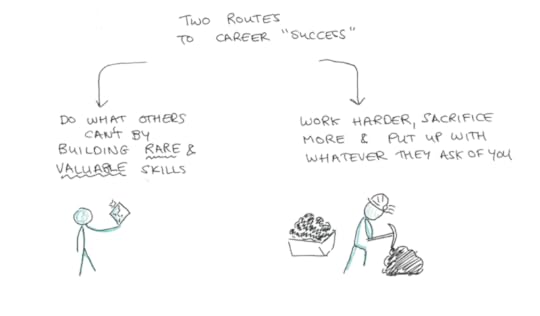
The second, however, is by simply doing the same work—but doing a lot of it. This is the employee who is valuable, not because they’re doing a higher quality of work that can’t be done elsewhere, but because they deliver a lot more of it. They work themselves sick to meet deadlines, they respond to every email immediately, they never take sick days or vacations, they’re always there to do more of the job assigned to them.
As a stepping stone to learning, or to building other career assets, this kind of behavior isn’t always bad. But many people get stuck in it.
Suppose, after some time pursuing this strategy to your career, you want to transition: work less hours, be more picky about projects, demand more automony and flexibility. What are those same employers and clients going to think?
Now they’d rather not have you. Your main value to them was your willingness to do tons of work, always show up and never be difficult to work with. If you’re not going to do that anymore, you’re no better than any other slacker they have working for them.
Illusions of Career Capital
At the beginning of this series, I argued that career capital reflects your negotiating power in your career. Have a lot of it, and you get to call the shots. You get to decide whether you prefer more pay or more flexible work. You can choose work arrangements that “aren’t allowed” by your company, because you can deliver on things others can’t.
However, this doesn’t often feel like the reality for many of us. We do well in our career, but then the opposite happens! We have more work responsibilities, more demands, fewer choices and freedom than we did when we started out. Why does getting more career capital result in this setback and loss of freedom?
In some cases, this setback is just the result of an unconscious choice. You always prioritized the route that gave more responsibility and demands. As a result, you’re in this situation because you never actually reflected on what kind of lifestyle you really want to lead.
In many other cases, however, this feeling isn’t an illusion. You really do give up a lot of freedom as your career advances. I’d argue this is often because your value statement, the reason your clients and employers have internalized as to why they want you to work for them, is because you do what they want.
True top performers don’t just do whatever other people want them to do. They are often difficult to work with, because their value means they can be extremely picky about what kind of work they do and why they do it.
This doesn’t mean you should go out and start being difficult and picky about the work you do. That’s mixing up cause and effect. But it does show that just focusing on trying to out-work everyone may put you in a situation where you later to struggle to negotiate a different kind of lifestyle.
What Can You Do Instead?
Recognize that your career capital, to be truly valuable, should be embodied in things that actually give you the power to negotiate what you want.

If the main reason clients like your work as a contractor is because you do the job really cheaply, you’ll struggle to raise your rates.
If the main reason your boss likes you is because you’ll work 12-hour days to meet a deadline without collecting overtime, you’ll have a hard time asking for a long vacation.
If the main reason your company likes you is because you’ll sacrifice your life for the sake of the job, it will be hard to establish work-life balance later.
Instead, you need to start looking at skills that allow you to be valuable in spite of the things you want from the job.
Deliver a product so high-quality, that your customers will swallow the price tag.
Fix problems at the company nobody else can, that your boss is willing to tolerate that you want to work from home (even though nobody else does).
Productivity and work-ethic are often instrumental in acquiring these skills in the first place. However, it’s a bad idea to mistake them as the source of your real value.
Top Performer, the course I teach with Cal Newport giving you a path to develop rare and valuable skills in your career will have a new session soon. Find out more about it here.
The post The Productivity Pitfall appeared first on Scott H Young.
May 22, 2019
Feeling Stuck at Work? Here’s How to Keep Moving Forward
In the last lesson, I showed why a lot of plans people make to avoid their work are misguided. Either the schemes don’t work at all (because they defy basic economic logic) or they result in escaping work only to leave a vacuum with nothing to fill it.
Instead, I argued, the better approach is to master your career. Build enough career capital so that you get to dictate the lifestyle you want, rather than meekly submitting to the ones other people would prefer that you follow.
Mastering your career, through building rare and valuable skills, isn’t easy. It can often feel as though you’re stuck—working really hard, but not getting anywhere fast.
Why You Get Stuck
K. Anders Ericsson’s work on deliberate practice was made famous by the 10,000 hour rule. Malcolm Gladwell had made the rule famous in his popularization of Ericsson’s research in his book Outliers.
The story told in the book, that becoming an expert requires an enormous amount of practice, has some appeal to it. However, as is often the case in science, the truth is more nuanced than the simplistic picture led on.
A common misconception of the rule was that putting in 10,000 hours was all that was required for excellence. Ericsson’s research, however, showed that this was far from the case. Most practitioners, whether they be doctors, athletes or chess players, reach an adequate level of performance and then stagnate.
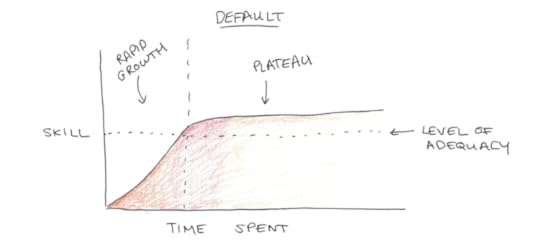
Getting stuck, not moving ahead, is the default.
This also explains why many of us feel like we’re stuck in our careers. Getting stuck is the rule, not the exception.
Why Working Harder Doesn’t Work
It’s tempting to think that the way to get unstuck is to just work harder. While this is certainly an important part, just putting more effort in isn’t guaranteed to produce any results.
As you do the work in your job more and more, the habits you have for performing those skills become more and more deeply ingrained. Getting better requires pushing outside of those habits, and doing it systematically enough to get improvement.
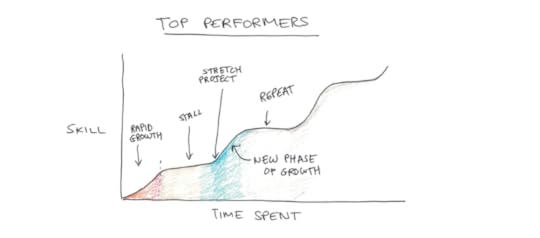
It turns out that this is really hard to do. Just putting in more effort, if attention isn’t being paid to the right elements of your work, or if the environment isn’t optimized for deliberate practice, may end up simply reinforcing your old patterns, rather than upgrading them to new ones.
A Deliberate Practice Process for Your Work
While Ericsson’s research was instrumental in showing how deliberate practice contributes to expertise, it’s often not clear how to apply this in your profession.
Practicing layups, guitar solos or chess positions is easy to understand. But how do you practice a job, when much of what you do is write emails? How do you get better at something, when it’s often not even clear what skill is being practiced?
This difficulty was the major motivator behind Cal Newport and myself creating Top Performer. We wanted to know how you could identify the skills that mattered for your profession, and once you had done so, how could you get really good at them?
A Two-Pronged Strategy
After working with hundreds of students in the early versions of the course (as thousands since), the approach we found best for adapting deliberate practice to knowledge work was to focus on two different methods:
First, understand your career deeply by doing research. A lot of people struggle in their careers (especially in the beginning) because they haven’t yet learned how it works.
For instance, many non-fiction authors think the best way to write a bestselling book is to start by writing it. However, this isn’t how the industry works—getting an agent, writing a proposal and building an audience typically precede it.
If you’ve ever felt confused or bitter as to why some people seem to keep getting promoted in your office, while you get ignored, chances are you haven’t fully understood how your profession works yet.
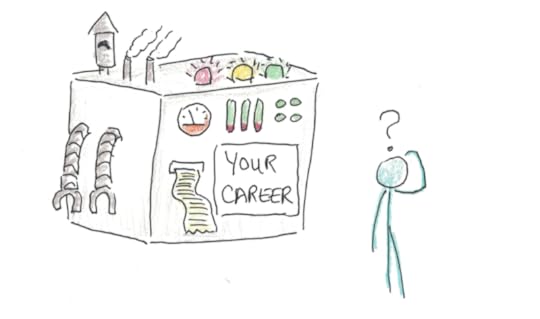
One Top Performer student discovered that he had been missing out on promotions because, in his company, they were being given based on the dollars of value generated. He thought he was doing good work, but because he didn’t focus his efforts on delivering this result, he was being overlooked.
Second, once you understand your career, create projects that will force improvement in specific skills.
How to engage in deliberate practice was a tricky problem when we first started preparing the course. In the end, we found that designing projects was the right way to think about the problem. The right kind of project not only creates an environment where skill growth is possible, but it is often a lot more manageable than simply trying to get “better” in the abstract.
Of course, both doing research and designing projects have quite a bit of nuance, which is why Top Performer is an eight-week course, instead of just an article. However, this general strategy: figuring out how your career works, then designing projects to get really good at it, is surprisingly effective.
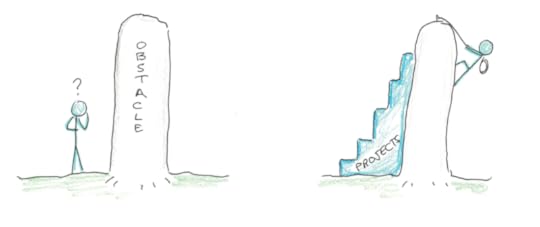
Over the course of running Top Performer, we have had quite a few students who have accelerated their careers, upgraded to six figure salaries or negotiated lifestyle perks that many dream about. Building a career you love isn’t easy, but it is worth the effort.
Top Performer will be holding a new session soon. Sign-up here to find out about when we re-open.
The post Feeling Stuck at Work? Here’s How to Keep Moving Forward appeared first on Scott H Young.
May 20, 2019
Fantasizing About Retirement? Here’s How to Build a Career You Won’t Want to Quit

Most work sucks.
Your boss is demanding, the tasks are menial, you’re not paid what you’re worth and you can never seem to get enough sleep.
It’s no wonder, then, that a lot of people hate their jobs.
The thing that FIRE (the people who want to retire in their thirties), cryptocurrency junkies and passive-income enthusiasts all have in common is the desire to escape. To get away from the drudgery of work.
Why Escape Isn’t the Answer
The first problem is that work is often necessary. The second problem is that, even if you could run away, you’d end up with the same kinds of problems.
You need money to live, and, assuming you weren’t born with a trust fund, that means you’re going to have to work to earn it. To get that money without stealing, other people have to give it to you. Which means they need to give it in exchange for something they value more.
This value equation is the reason a lot of investing scams don’t work. They trick you into thinking you can get money without adding value in exchange. Real investing does do this—by allowing others to use your money, in exchange for it back later with interest (or profits). Schemes try to bypass this logic, however, to show you that there’s a way you can earn far more for less work and less risk than everyone else can.
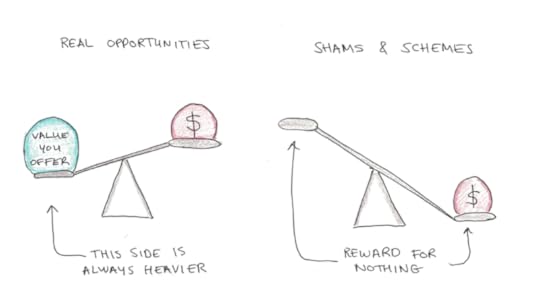
Value, however, isn’t enough. Because we live in a market economy, we’re all competing to deliver it. Which means that the value you offer that everyone else can tends to get bid down to the lowest price.
This competitive equation, shows why most passive-income systems fail. You may be able to automate a system that can generate money while you sleep, but what’s to stop somebody else from doing the same thing and lowering your profits?
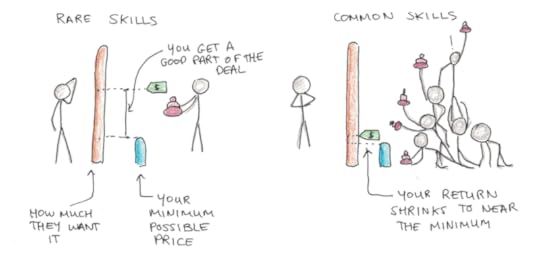
Early-retirement enthusiasts manage to avoid this difficulty by living frugally and having an insane savings rate. Done well, you might even be able to shave a decade (or two) from your working life.
However, abandoning work altogether creates a vacuum. What are you going to do with your time? What is going to give you meaning and purpose? Retiring early sounds sexy, until you realize it’s merely a plan to avoid something you don’t like—not a strategy (on its own) to create a life you’ll love.
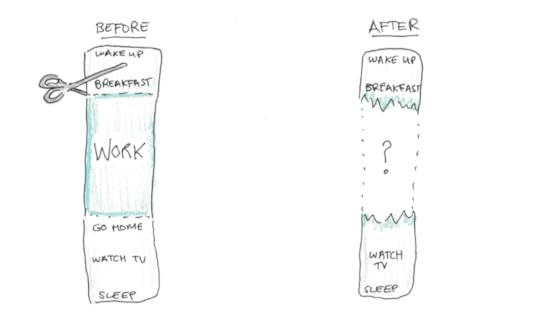
What Should You Do Instead of Running Away?
Most work sucks. But yours doesn’t have to.
It is possible to have a truly meaningful and fulfilling career. One which will challenge you, excite you and make you feel like you have a mission—rather than just a job position.
The classic advice for how to get this kind of work was to follow your passion. Be brave. Quit your job. Go into your dream profession, even though most people don’t make it.
This is dumb advice, and it’s bad for two reasons.
First, follow-your-passion advice creates the same problems as other work-escape strategies I mentioned above. The list of pre-existing passions people think they have is much narrower than the total jobs which exist. People dream of being a dancer, not an office manager.
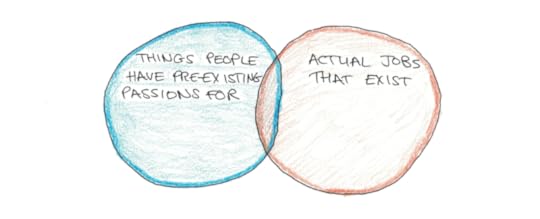
Since the “passion” jobs are far fewer than the total jobs out there, they tend to be extremely competitive. Thus they pay lower and make it hard to survive. Competition can also amplify other negative tendencies. I can’t tell you how many times I’ve heard of despicable bosses and colleagues in industries people go into for passion. They exist, because in more humdrum pursuits, people wouldn’t put up with it. However, when you’re working in art, film or non-profits, toxic people persist because they those following their passion will put up with it.
The second reason this is bad advice is that it’s not even how people get jobs their passionate about. Cal Newport, author of So Good They Can’t Ignore You, and my co-instructor for Top Performer, argues that, instead, most people find work they love by building rare and valuable skills.
Don’t Escape Your Career—Master It
Cultivating rare and valuable skills in your work isn’t easy. But it’s the only path to building a life full of meaningful activity that you actually enjoy.
If you can do this, however, then the choice about what kind of life you want to live is completely up to you. You can translate your career capital into an ambitious, high-paying job with responsibilities and lucrative rewards. Or, if you prefer to take it easier, you can negotiate to work less, with more flexible hours and without bullshit work assignments.
Without career capital, you enter every negotiation with a lousy hand. As a result you get less pay, less respect, fewer opportunities and less flexibility to choose the lifestyle you want to live. With that capital, however, you can design the life you really want to live, not just escape from it.
This is the first lesson in a brief series on building your career. After the lesson concludes, I will be opening Top Performer, the course designed to help you build rare and valuable skills which I co-instruct with Cal Newport, for a new session.
The post Fantasizing About Retirement? Here’s How to Build a Career You Won’t Want to Quit appeared first on Scott H Young.
May 17, 2019
Why Do Some People Get Things Done Effortlessly?
Question: You know those people – ones that don’t stress over exam deadlines, never do overtime at work, go to the gym in the morning, file their taxes in advance and somehow go to bed before midnight. While most of us struggle, how come some people seem to be doing it without much effort?

Scott:
The amount of effort something takes you depends a lot on your skill level. Think about doing something simple like reading this sentence. There was a time when this activity was hard and painstaking for you. Recognizing each letter, putting them together to form sounds, realizing that some words aren’t said the way their letters sound.
While it’s easy to think of literacy as being something that’s obviously a skill, most of life is also made up of skills. Passing exams, completing work, habits of exercise and productivity.
The right way to look at someone who is doing something better than you is to recognize that this person might have learned a skill you haven’t yet. Skill isn’t the only thing that separates people. Someone who is 7’ tall will be able to slam dunk easily while I likely never will. Differences in talent matter as much as differences in skill, depending on the domain. However, I usually opt to focus on skill differences because there’s not much to be done about differences in talent.
Whether the reason is skill or talent, effort is inversely proportional to ability.
Gain ability and the effort goes down.
Removing the struggle in life is about gaining abilities—either through learning skills, knowledge or building habits.
Related:
Are Successful People Just Putting in More Effort?
As someone who writes advice for a living, I’m always interested in the ways advice works, how it gets distorted and what the typical advice-receiver can do about it.
Make Plans Work on 20% Effort
Your ability to commit to things in theory, is much stronger than in practice. Now imagine you were a person with a fifth of your normal discipline, willpower and free time. How would you make a plan to accomplish the goal in front of you?
Why Focus (not Effort) is the Key to Getting Stuff Done
Stop doing so much stuff. Being more focused is easy: stop having so many damn goals.
The Effort Threshold
The idea that all goals have a minimum effort threshold is a powerful one. If you know roughly what the effort threshold is for any particular goal, you can stop worrying about which tactics to use until you’ve committed at least that much effort.
The post Why Do Some People Get Things Done Effortlessly? appeared first on Scott H Young.
May 16, 2019
Evaporating Motivation
Question: At times, we find ourselves getting extremely excited about certain things in our lives. It could be a hobby, social activity, groups of people or even our lives in certain phases. But, as time goes on, we see the motivation and enthusiasm evaporate. Should we be re-kindling the fire somehow or moving on to new things?
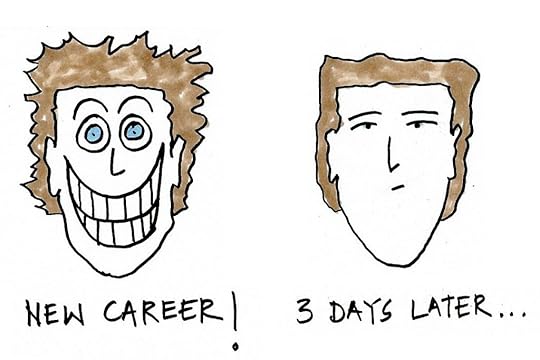
Scott:
Maintaining motivation for long periods of time is a myth. All it takes is a little introspection to see that this is obviously true. Motivation is an emotion, and most feelings, no matter how intense, last only for a few hours (or days) at most.
Therefore, what we often perceive as a continuous motivation is really something else. It’s a constant triggering and retriggering of some patterns of behavior that lead to the same feeling. It’s easy to think about this in the context of anxiety. If you feel stressed out by something (say an upcoming exam) you may say that you constantly feel stressed out. But if you were to think about it more carefully, it’s probably more accurate to say that you feel stressed out when you think about the exam. Outside of those thoughts, you have gaps where you think about something else and the feeling goes away.
Because feelings like motivation are ephemeral, I think it’s very difficult to sustain them over the lifetime of a truly ambitious goal or project. Instead you need to think about creating contexts and cues that will trigger the motivation when you need it.
There’s two ways you can do this:
1. Create systems that force you to work
Create systems that force you to work on things even when you don’t “feel like it.” This sounds like self-discipline, but I tend to focus on the systems as being outside yourself rather than a quality of your character. How did you design your goal? Structure your project? If you design these choices well, it can create a tension that moves you forward even when motivation isn’t spontaneous.
2. Leave triggers in your environment
Leave triggers in your environment that will help rekindle that initial motivation. Why did you set out on your goal in the first place? Reminding yourself about the reasons for your motivation systematically can help re-trigger your motivation more than just hoping an initial feeling will last.
Ultimately all our emotions are fickle and fleeting. To accomplish anything outside the status quo requires changing your environment so that those bursts of enthusiasm and discipline become systematic instead of random.
Related:
Do You Use “Lack of Motivation” as an Excuse?
Many people I know tell me that they are not motivated enough to set goals. Discover my reasons why and how you should set goals despite of it.
How to Discover What You’re Passionate About.
Enjoying playing video games isn’t the same as spending thousands of hours designing your own. Your passion has to be something you would work exceptionally hard for. So what do you do, if there is nothing you feel that engaged about?
What Do You Want to Do With Your Life?
What do you want to do with your life? It’s a question almost everyone asks themselves. It’s also a question I don’t believe you should bother asking in the first place.
The Zen of Folding Laundry, and Other Thoughts on Happiness.
How to stop resisting life and accept things.
The post Evaporating Motivation appeared first on Scott H Young.
May 15, 2019
You Fail to Reach Your Goals Because You Designed Them Badly
Reaching any goal requires motivation, self-discipline and commitment. But where do those things come from?
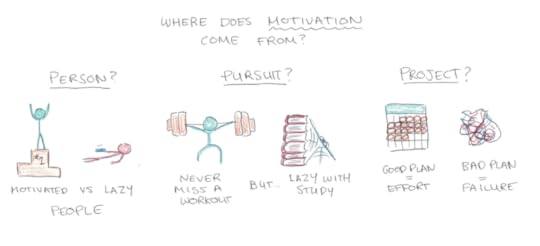
Many people see these as personality traits. Some people are motivated, others are lazy.
Other people recognize that they are sometimes lazy and sometimes motivated. So they add a little nuance and say that it depends on the pursuit. You might be lazy about cleaning your house, for instance, but never miss a gym day
I think the truth, however, is even more extreme than this. Motivation, self-discipline and commitment aren’t mostly about personality or the pursuit. Rather, I believe much of the difference between motivation and laziness comes from how you design your projects.
Human Nature is a Lot More Situational Than You Think
It’s been well-studied by psychologists for decades now that human behavior tends to depend more on situations than on persistent attributes of individuals.
Whether people will steal something depends a lot more on varying the context around the theft than from choosing between people who are inherently thieving or honest. Whether people cheat on tests depends a lot more on the environment than character. Whether people will help a bystander or ignore him depends more on situational factors than deeply-held convictions.
This is a deep truth that goes against a lot of our intuitions about other people. We tend to think people act a certain way because that’s the kind of person they are, rather than because that’s the kind of situation they are in.
This bias towards believing how people behave is mostly character and personality, rather than situation and environment, even has a name: fundamental attribution error.
How to Focus on Hard Goals
During my recent livestreamed ultralearning project to learn quantum mechanics, a number of visitors asked how I was able to focus on studying for so long.
The easiest explanation is that I’m somehow hard-wired for focus. Alternatively, you might wonder whether I just love physics so much I can concentrate for hours.
Yet, I don’t think these are the most important factors. Why? Because before I set up my project I had tried to learn the class previously. It went how you expect: I would start watching lectures, get distracted, never work on any hard problem sets and so on.
Similarly, when my project finished I wanted to learn the next class, 8.05. Had I changed and now adopted a successful approach? Nope, I was back to the same approach from before–watching lectures for a few minutes, getting distracted, avoiding the homework.
What was different during my one month project was how I designed it. Making it a priority, setting aside the time, creating motivational pressures, accountability and more.
How to Design Motivation Into Your Goals
If there were a simple formula, goal-setting would be easy. Instead, designing your goals so they generate the motivation required to reach them is hard. That being said, there are some factors you can adjust to improve your results:
1. Does Your Project Have Clear Standards?
Watch out for vague ambitions. Effort is never automatic, so if your ambitions are hard to define, it’s easy to slide back on them when you feel lazy.
There’s a million ways to choose these standards. I’ve already talked about maximum, minimum and average targeting. Constraints can be for outcomes (trying to complete MIT’s computer science curriculum in a year.) They can be about process (not speaking English to learn languages.) They can be habits (50 push-ups a day.) Or they can be to-do lists and milestones.
Standards form the constraints which keep you from sliding backward.
2. Do You Believe You Can Meet the Standard?
There’s always a tension between rising to the challenge set by the standard and rejecting it entirely. If you believe your standard can’t be met, you’ll reject it and give up.
Good standards, therefore, are ones you believe you can reach. They should also be ones that are less likely to get frustrated by outside circumstances, making them impossible for reasons you can’t control.
You’ll notice that this can create a positive feedback loop. Strong confidence results in lots of effort. Low confidence and even easy goals can’t be met. Bootstrapping this confidence spiral is a long-term effort, but it helps explains why some people are very ambitious and others are not.
3. Does the Standard Help You Reach the Result?
Clear standards are useless if they don’t actually help you reach your goal. Trying to lose weight by cutting out soda probably won’t help much, since you’ll probably just eat the calories somewhere else.
Standards for your actions are easier to enforce and motivate. Standards for outcomes can be more fickle, but they ensure you stay on target. A good project combines both so you reach your goal and maintain your motivation
4. Are There Immediate Incentives for Meeting (or Failing to Meet) the Standard?
Not only having clear standards, but immediate incentives for keeping them is important. A lot of goals only have diluted, long-term benefits for sticking to them.
A key skill of maintaining motivation on hard goals is constantly breaking down the goal into steps that need to be worked on now. If your only goal is to pass an exam that is months away, there’s little incentive to work now. If you need to finish chapter 2 by this afternoon, you have a push to get working.
5. Is Meeting the Standard a Priority?
No project you create exists in isolation. Every other part of your life is always being implicitly weighed against putting in effort into a project. Low-priority projects will fail when other things take precedence.
This is part of the reason I prefer either easy habits or intense, short-term projects. Easy habits aren’t priorities, but they also are easy to maintain. Intense, short-term projects may consume your life, but because they’re short, you can make space for them rather than try to juggle too many things simultaneously.
Projects you aren’t willing to put first won’t get done. Most goals fail before they begin because they aren’t a priority.
Other Advice on Structuring Projects
These are merely general features of good structures. Actual projects often have structures that depend on the specific situation. Careful choices here can make an enormous difference in your effort, motivation and outcome you experience.
If you choose wisely, you can do great things even if you’ve been lazy, unmotivated or uncommitted in the past. Choose poorly, however, and even the most committed person will make little progress.
The post You Fail to Reach Your Goals Because You Designed Them Badly appeared first on Scott H Young.



